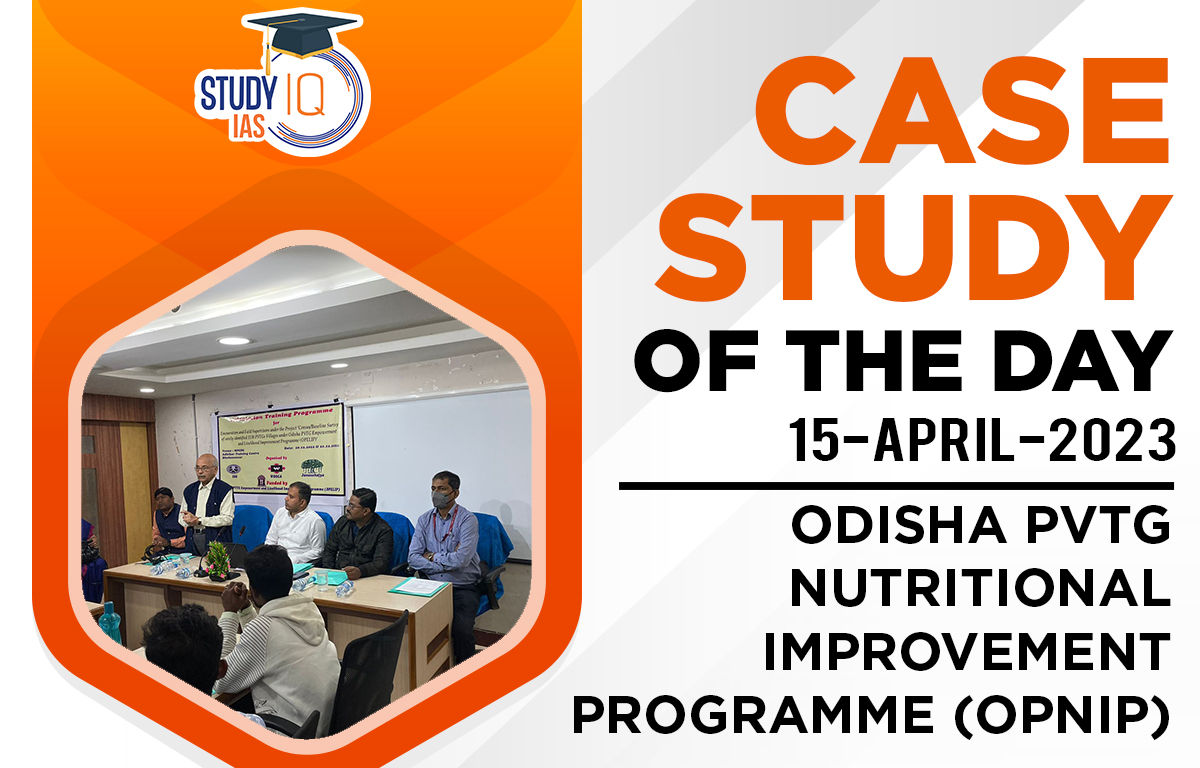Table of Contents
Context: Odisha PVTG Nutritional Improvement Programme (OPNIP) was launched by the Government of Odisha in collaboration with the United Nations Development Programme (UNDP) in 2013.
Objective of the Programme
- The OPNIP aims to address the nutritional needs of the PVTGs in Odisha by improving their access to diverse and nutritious food, promoting sustainable agriculture practices, and enhancing their knowledge and skills related to nutrition and health.
The Programme Focuses on the Following Objectives
- To increase the availability of diverse and nutritious food for the PVTGs through the promotion of sustainable agriculture practices.
- To enhance the knowledge and skills of the PVTGs related to nutrition and health.
- To improve the utilization of available food and the adoption of appropriate feeding practices among the PVTGs.
- To strengthen the community-based monitoring and evaluation mechanisms for the programme.
Envisaged Interventions Include the Following
- Promotion of sustainable agriculture practices: The programme has promoted the cultivation of diverse crops and vegetables, including traditional varieties, and provided training and support to farmers for the adoption of sustainable agriculture practices. The programme has also established community seed banks for the conservation of traditional crop varieties.
- Nutrition education and counselling: The programme has conducted awareness campaigns and training sessions on nutrition and health for the PVTGs, especially women and children. The programme has also established Nutrition Rehabilitation Centres (NRCs) for the treatment of malnourished children.
- Community-based monitoring and evaluation: The programme has established community-based monitoring and evaluation mechanisms, including the formation of Village Nutrition Committees (VNCs) and the appointment of Community Nutrition Facilitators (CNFs) to monitor the programme’s progress and provide support to the PVTGs.
Outcomes of the Programme
- Increase in food diversity: The programme has contributed to an increase in the availability of diverse and nutritious food for the PVTGs, with farmers adopting sustainable agriculture practices and growing traditional crop varieties.
- Improvement in knowledge and skills related to nutrition and health: The programme has enhanced the knowledge and skills of the PVTGs, especially women and children, related to nutrition and health.
- The programme has also improved the utilization of available food and the adoption of appropriate feeding practices among the PVTGs.
- Reduction in malnutrition: The programme has contributed to a reduction in the prevalence of malnutrition among the PVTGs, with the establishment of Nutrition Rehabilitation Centres (NRCs) and the provision of nutritional supplements to malnourished children.
Conclusion
- The OPNIP program has demonstrated the importance of a participatory approach in addressing the issue of malnutrition among vulnerable communities.
- The program has shown that community-based interventions can be effective in improving the nutritional status of PVTG communities, and can lead to positive health and livelihood outcomes.


 Serious Fraud Investigation Office (SFIO...
Serious Fraud Investigation Office (SFIO...
 Article 142 of Indian Constitution, Sign...
Article 142 of Indian Constitution, Sign...
 Pakistan-Occupied Kashmir (PoK): History...
Pakistan-Occupied Kashmir (PoK): History...





















